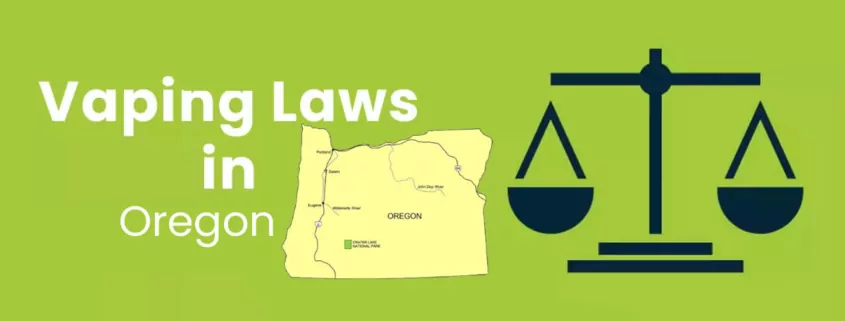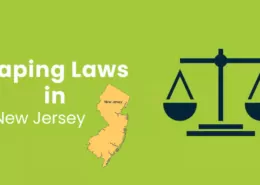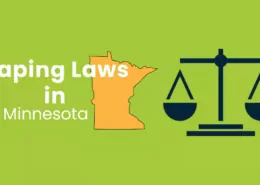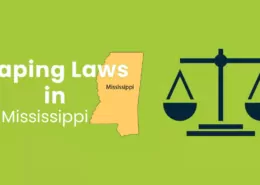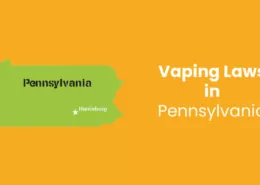Vaping Laws in Oregon: What You Need to Know in 2025
Oregon has established itself as a state with a robust and evolving framework of laws governing vaping products, including e-cigarettes, vape pens, and e-liquids. This framework combines a strict statewide minimum age for purchase, comprehensive restrictions on where vaping is permitted, significant taxation, and detailed retailer responsibilities.
This guide provides an in-depth look at Oregon’s current vaping laws, helping you understand what’s legal, what’s changing, and what it means for you.
The Legal Foundation of Vaping Laws in Oregon
At the core of Oregon’s approach to vaping is a clear legal definition that brings these products under tobacco control measures, alongside unwavering age limits for purchase and possession.
Defining “Tobacco Product” and “Inhalant Delivery System”
Oregon law is explicit in its classification of vaping products. The definition of “Tobacco product” in Oregon statutes includes “an electronic smoking device [vapor product]” and any component or accessory used in its consumption, such as liquids, whether or not they contain nicotine. Additionally, the term “inhalant delivery system” is used to define devices or components that deliver vapor or aerosol for inhalation, such as e-cigarettes, vape pens, and e-hookahs, as outlined in Or. Rev. Stat. § 431A.175(1)(a).
Minimum Legal Sales Age: Strictly 21
Oregon was one of the first states to raise the minimum legal age for purchasing tobacco and vapor products to 21 years old, enacting this law in 2018, ahead of the federal “Tobacco 21” mandate that followed in December 2019. This is a cornerstone of the state’s efforts to curb youth nicotine initiation. Key aspects include:
- Purchase Prohibition: It is illegal for anyone under 21 to purchase vaping products.
- Possession by Minors: The possession of vaping products by individuals under the age of 18 is also prohibited and classified as a Class D violation, which can result in a fine of around $90. Notably, state law does not currently penalize individuals aged 18-20 for simple possession.
- Retailer Verification: Retailers are legally mandated to verify the age of any purchaser who appears to be under 30 years old by checking a valid government-issued photographic identification.

Where Vaping is Prohibited in Oregon
Oregon has taken significant steps to protect its residents from secondhand aerosol exposure by extending its comprehensive Clean Indoor Air Act to include vaping products.
Oregon’s Indoor Clean Air Act (ICAA)
The Oregon Indoor Clean Air Act (ICAA) was amended in 2016 to explicitly include “inhalant delivery systems” (vaping products) in its definition of “smoking”. This means that vaping is prohibited in virtually all indoor public places and places of employment where traditional smoking is also banned. These locations include, but are not limited to:
- Restaurants and bars.
- Indoor workplaces.
- Retail stores and shopping malls.
- Public buildings and government facilities.
- Healthcare facilities and hospitals.
- Childcare facilities.
- Jury rooms.
- At least 75% of hotel and motel rooms.
Outdoor Restrictions and Entryway Rules
Beyond indoor spaces, the ICAA also mandates that smoking and vaping are prohibited within 10 feet of all entrances, exits, windows that open, and ventilation intakes of enclosed areas where smoking/vaping is banned4,19,18. This “buffer zone” aims to prevent aerosol from drifting into these smoke-free environments.
Furthermore, specific outdoor area restrictions include:
- State Parks and Beaches: Vaping is prohibited within 20 feet of beaches, playgrounds, snack bars, group picnic shelters, and other business facilities in state parks or historic sites.
- Local Ordinances: Many municipalities, such as Portland, have enacted their own stricter local ordinances that ban vaping in all public parks, beaches, and playgrounds within their jurisdiction.
Vehicle Restrictions
Oregon law (Or. Rev. Stat. § 811.193) prohibits smoking (which includes vaping) in a motor vehicle when a child under the age of 18 is present. Violations can result in fines.
Ecigator is one of the well-known vape brands spun off from FM Technology Co., Ltd, it’s an ISO-certified disposable vape manufacturer for OEMs, ODMs, and OBM since 2010. The founder team comes from top firms with more than 10 years of experience in the vaping industry and has devoted thousands of hours to providing users with a better and better experience.
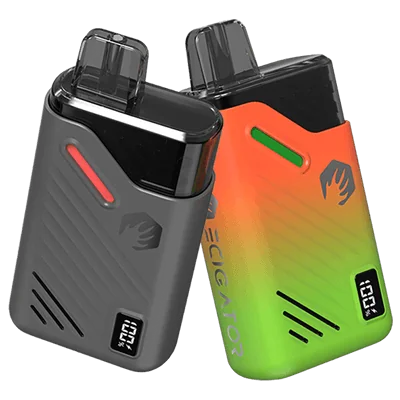
18K Disposable Pod Kit
Disposable Pod Kit – 18ml changeable pod with 650mAh rechargeable battery.
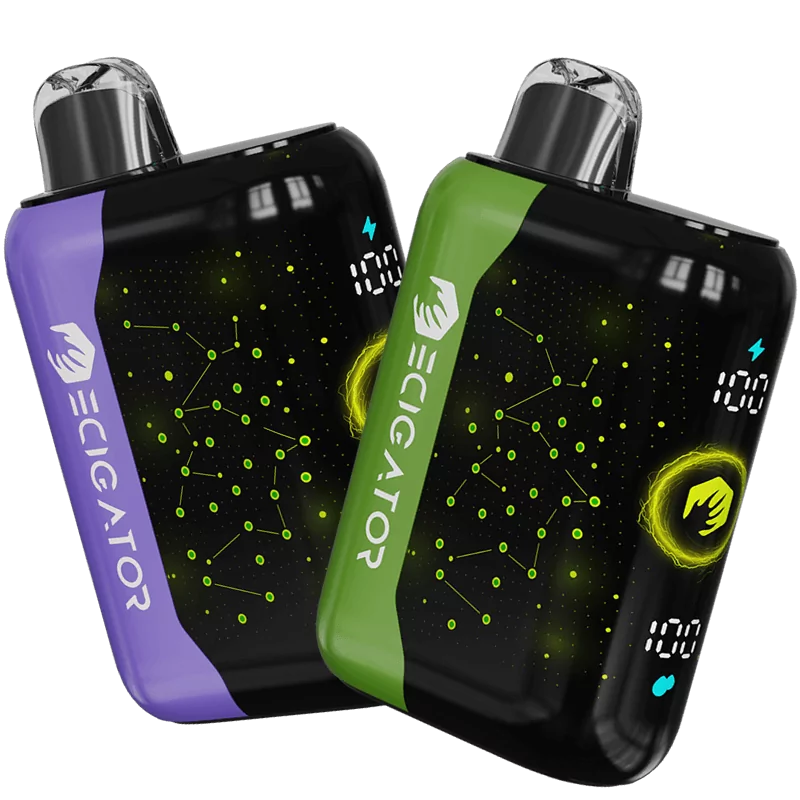
35K with Large Screen
35000 Puffs Disposable Vape with 3D galaxy screen. Eco and Pulse working modes.
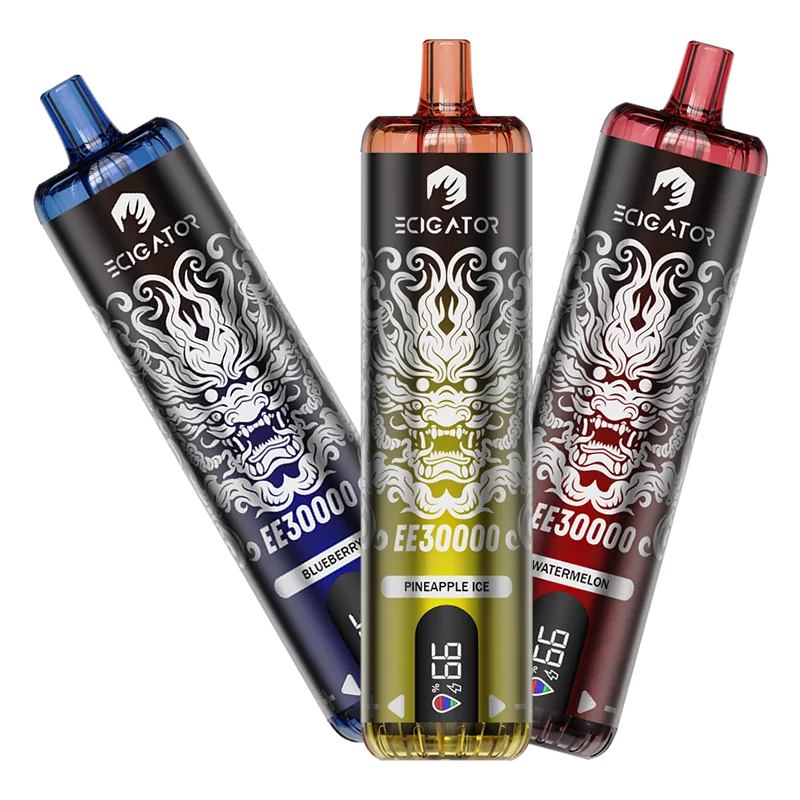
30K DTL Disposable
30K Puffs DTL(Directly to Lung) disposable vape with airflow control and screen.
Selling Vaping Products in Oregon
The sale of vaping products in Oregon is a tightly regulated activity, with specific requirements for licensing, product handling, and sales practices.
Mandatory Statewide Tobacco Retail License
As of January 1, 2022, all businesses that sell tobacco or vaping products in Oregon must obtain a Tobacco Retail License from the Oregon Department of Revenue. This requirement applies to all retail environments, including convenience stores, gas stations, bars, restaurants, and dedicated vape shops. Key details include:
- Annual License Fee: The fee is $953 per retail location.
- Separate License per Location: Each business location requires its own distinct license.
- Display Requirement: The license must be posted in a location where customers and staff can easily see it.
- Compliance Checks: Licensed retailers are subject to at least one compliance check per year to ensure they are adhering to all state laws, including age verification.
Sales Practices and Product Requirements
- No Self-Service Displays: Self-service displays of vaping products are prohibited except in tobacco specialty stores or other locations that are physically inaccessible to individuals under 21 (e.g., behind the counter).
- Vending Machines: Vending machine sales of vaping products are restricted to locations where individuals under 21 are not permitted access.
- Child-Resistant Packaging: Nicotine liquid containers sold or distributed in Oregon must be in child-resistant packaging, as per Or. Rev. Stat. § 431A.175(2)(d). This excludes prefilled, sealed cartridges or pods not intended to be opened by the consumer.
- Online Sales Prohibition: Oregon law prohibits tobacco products (which includes vapes) from being shipped directly to anyone other than a licensed distributor or retailer in the state. This effectively bans out-of-state online/phone sales directly to consumers in Oregon.
- Dispensary Sales Ban: Medical marijuana dispensaries are prohibited from selling nicotine-containing inhalant devices.
Taxation of Vaping Products in Oregon
Oregon imposes a significant state excise tax on all “inhalant delivery systems,” which includes e-cigarettes, vape pens, and both nicotine and non-nicotine e-liquids. The tax rate is 65% of the wholesale price of these products.

ECIGATOR
Ecigator is one of the well-known vape brands spun off from FM Technology Co., Ltd, it’s an ISO-certified disposable vape manufacturer for OEMs, ODMs, and OBM since 2010. The founder team comes from top firms with more than 10 years of experience in the vaping industry and has devoted thousands of hours to providing users with a better and better experience.
The Battle Over Flavors and Packaging
The Ongoing Push for a Statewide Flavor Ban
As of 2025, Oregon does not have a statewide ban on the sale of flavored vaping products. However, this remains one of the most contentious and actively debated issues in the state’s vaping policy landscape. In the 2025 legislative session, Senate Bill 702 was introduced with the aim of prohibiting the sale of all flavored tobacco and vaping products statewide. The bill defines “flavoring” broadly to include any taste or aroma other than tobacco, explicitly covering menthol, mint, fruit, chocolate, and candy flavors. While this bill and similar past efforts have faced significant lobbying and have not yet passed, public support for some form of action is reportedly high, with a 2024 poll showing 61% of Oregon voters in favor.
In the absence of a statewide ban, some local jurisdictions have taken action. Washington County has successfully enacted and defended a local flavored tobacco ban, while Multnomah County’s similar ban has faced ongoing legal challenges.
Court Strikes Down Packaging and Marketing Restrictions
In a significant legal development in October 2024, the Oregon Court of Appeals ruled that certain state restrictions on e-cigarette packaging and marketing were unconstitutional as they violated free speech protections under the Oregon Constitution. A 2015 law had prohibited packaging deemed “attractive to minors,” which the Oregon Health Authority interpreted to ban:
- Cartoons, mascots, and celebrity endorsements.
- Descriptive flavor words like “juicy,” “cool,” “fire,” or “tangy.”
- Even using the word “apple” to describe an apple-flavored product.
The court found that the law was directed at the expressive content of the packaging itself without a proven direct link between the “attractive” packaging and the harm of youth vaping. This ruling allows sellers to once again use more descriptive language and varied packaging, though they must still adhere to all other state and federal regulations, including the ban on sales to minors and mandatory child-resistant packaging.
Enforcement and Penalties
Violations of Oregon’s vaping laws carry various penalties:
- For Businesses: Violating the Indoor Clean Air Act can result in civil penalties up to $500 per day, with a maximum of $2,000 in any 30-day period. Penalties for violating retail licensing requirements are issued by the Oregon Department of Revenue. Selling to minors can result in penalties ranging from $100 to $500.
- For Individuals: As mentioned, possession of vaping products by individuals under 18 is a Class D violation, which can result in a fine.
Enforcement is carried out by local health departments, the Oregon Health Authority, the Department of Revenue, and local law enforcement agencies.
Conclusion
Oregon’s vaping laws in 2025 reflect a comprehensive and proactive approach to public health, balancing the availability of these products for adults with stringent measures to protect youth and non-users. The 21+ age limit, extensive public use prohibitions (both indoor and in specific outdoor areas), a high wholesale tax, and a mandatory statewide retailer licensing system create a tightly controlled market. While the recent court decision has reshaped the rules around packaging and marketing, the ongoing legislative push for a statewide flavor ban indicates that the regulatory landscape is far from settled. For consumers, retailers, and manufacturers, staying informed about this dynamic interplay of state laws, local ordinances, and court rulings is essential for ensuring compliance and navigating the future of vaping in the state of Oregon.
References
- Oregon Public Law – ORS 339.883 (Possession in schools)
- Oregon Health Authority – State Rules and Statutes
- Oregon Department of Revenue – Statewide Tobacco Retail License
- Oregon Department of Justice – Tobacco Legislation
- OregonLive – Oregon House lawmakers approve nicotine tax (June 2025)

